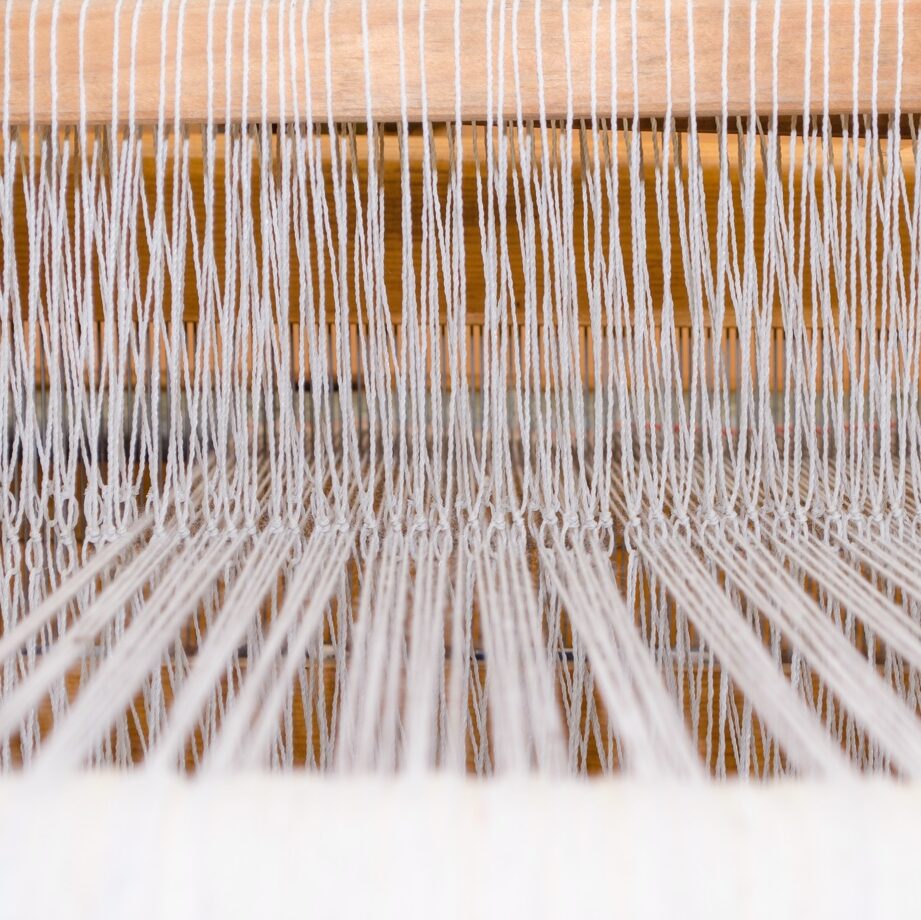Compared to natural, renewable fibers, synthetic materials like rayon are harmful and toxic for the environment, factory workers, and consumers.
Rayon has been riding a wave of popularity for over a century. Also known as viscose, it’s now the third most commonly used textile fiber in the world.
The synthetic material was all the rage when it hit the consumer market in the 1920s, just as the culture of opulence and excess of the time began to take hold. For those seeking a luxurious look, rayon was a more durable and affordable alternative to natural silk, eventually claiming the title of “artificial silk.” But the manufacturing process of rayon is much less glamorous than its appearance; it has a harmful impact on people and the planet due to its dependency on toxic production and deforestation.
As consumer demand for eco-friendly fashion grows, rayon is often marketed as sustainable, since it’s made from wood pulp and biodegradable. But this is a common misconception. Rayon is a man-made, synthetic fiber.
To produce rayon, highly toxic solvents are applied to wood pulp to break it down into purified cellulose. The hazardous chemicals required — like carbon disulfide — pose serious health risks for factory workers, including potential damage to reproductive and nervous systems. And because of the large quantities of necessary chemicals, residual toxins are emitted into the environment, polluting air and water. The entire process is also water- and energy-intensive, further depleting the Earth’s already limited resources.
But it’s biodegradable, they say! While this is true, take extra caution before adding a garment made of rayon to your compost pile. Rayon is often treated with toxic chemicals and synthetic substances, which leech into the soil as the material breaks down, inevitably making their way into your crops — and your body.

Read more: Eco-Friendly Fabrics to Add to Your Summer Wardrobe
In addition to environmental pollution, rayon production contributes in large part to an already rapid rate of deforestation. The world’s largest rainforests are cut down at an accelerating pace in order to fulfill the demands of the textile industry. About 200 million trees are logged every year for fabric creation, and since 2000, Indonesia has faced the highest deforestation rate in the world, losing 15 million hectares of its forest cover. And one-third of the trees loggers cut down come from ancient and endangered forests in regions like the Amazon and Indonesia.
Old-growth forests are essential for neutralizing the effects of climate change — they’re especially efficient at filtering clean air and absorbing carbon dioxide from the atmosphere. They’re also home to Indigenous communities and a range of unique biodiversity and endangered species. The good news is environmental organizations, like Canopy and Auriga, are working together with local governments and corporations to conserve these vital forests and make responsible harvesting practices the norm.
And, thanks to technology and innovation, there are more sustainable and ethical alternatives to conventional rayon — like modal and lyocell.
The production of modal and lyocell involves fewer chemical-intensive processes, which eases the burden on the environment and factory workers. Modal, for example, is made from beech trees, which require significantly fewer chemicals to process into fiber. The textile can also be spun-dyed, a more eco-friendly technique that uses 50 percent less water and energy than traditionally dyed fabric.
Meanwhile, lyocell — also known as Tencel — is derived from eucalyptus trees and is produced through a unique solvent spinning technique, which requires fewer steps than the conventional method of manufacturing rayon and relies on non-toxic chemicals. The result is a marked reduction in energy expenditure and harmful byproducts that are often released during the production of synthetic fibers.
Read more: Your DIY Guide To Naturally Dyeing Your Clothes
Of course, with all fibers — natural or synthetic — there’s also the matter of responsible sourcing and transparency. Currently, Lenzing-certified lyocell and modal are the industry standards for the sustainable production of these textiles. Their fabric is made from sustainably harvested trees and is produced using a closed-loop process that restores all the water and non-toxic resources back to nature. And because they don’t use toxic chemicals, Lenzing-certified lyocell and modal are also 100 percent compostable and biodegradable.
As consumers, knowledge is key. Part of making sustainable choices means understanding the negative impacts of synthetic fabrics like rayon and polyester. By doing your research, you’re empowering yourself to make the best decisions for your health and that of the planet.
Have feedback on our story? Email [email protected] to let us know what you think!

Shop Pillows
The Essential Organic Pillow Collection
Gentle, breathable, non-toxic support.






